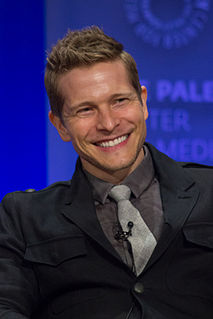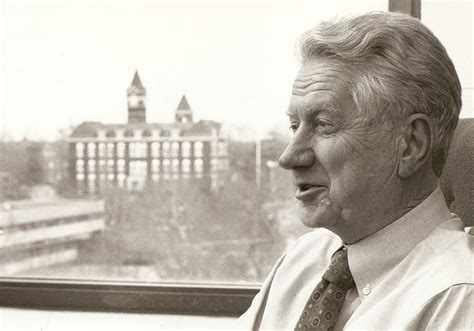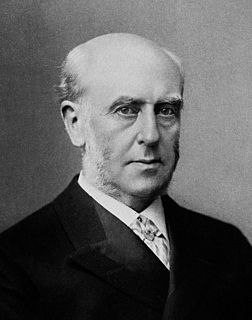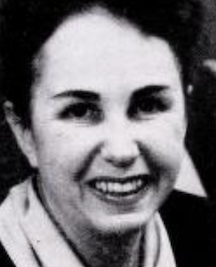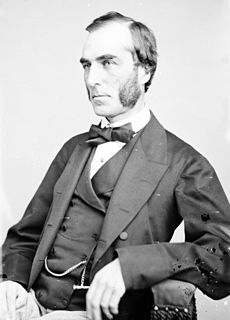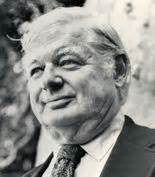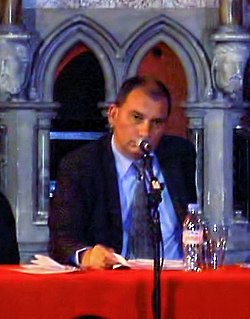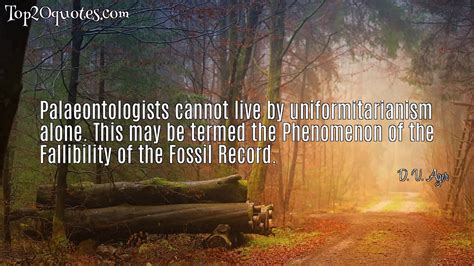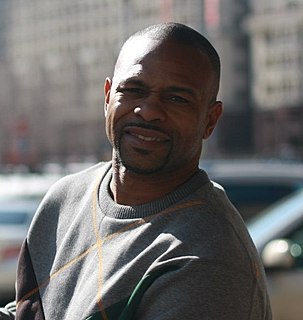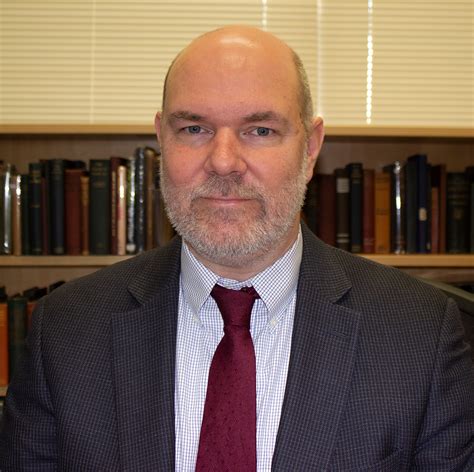Top 1200 Religious History Quotes & Sayings - Page 19
Explore popular Religious History quotes.
Last updated on December 23, 2024.
If Mother Culture were to give an account of human history using these terms, it would go something like this: ' The Leavers were chapter one of human history -- a long and uneventful chapter. Their chapter of human history ended about ten thousand years ago with the birth of agriculture in the Near East. This event marked the beginning of chapter two, the chapter of the Takers. It's true there are still Leavers living in the world, but these are anachronisms, fossils -- people living in the past, people who just don't realize that their chapter of human history is over. '
By helping to raise man above the level of bestial vegetation, faith contributes in reality to the securing and safeguarding of his existence. Take away from present-day mankind its education-based, religious-dogmatic principles- or, practically speaking, ethical-moral principles- by abolishing this religious education, but without replacing it by an equivalent, and the result will be a grave shock to the foundations of their existence.
In history there are no control groups. There is no one to tell us what might have been. We weep over the might have been, but there is no might have been. There never was. It is supposed to be true that those who do not know history are condemned to repeat it. I don't believe knowing can save us. What is constant in history is greed and foolishness and a love of blood and this is a thing that even God--who knows all that can be known--seems powerless to change.
The goal of this office will not be to favor one religious group over another - or even religious groups over secular groups. It will simply be to work on behalf of those organizations that want to work on behalf of our communities, and to do so without blurring the line that our founders wisely drew between church and state.
It is the duty of all men in society, publicly, and at stated seasons, to worship the SUPREME BEING, the great Creator and Preserver of the universe. And no subject shall be hurt, molested, or restrained, in his person, liberty, or estate, for worshipping GOD in the manner most agreeable to the dictates of his own conscience; or for his religious profession or sentiments; provided he doth not disturb the public peace, or obstruct others in their religious worship.
It's true that to speak of an ethic of giftedness, which is very much the ethic that I deploy in raising questions about designer children and genetic engineering - an appreciation of the giftedness of the child or the giftedness of life does have religious resonance, because a great many religious traditions emphasize the sense in which the good things in life are not all our own doing; they are gifts from God.
In America, religious dissent is as vital as it is elusive. Like the secretions of the pituitary, the juices of dissent are essential to ongoing life even if we do not always know precisely how, when or where they perform their tasks, and the not knowing - the flimsy, filmy elusiveness - is supremely characteristic of America's expressions of religious dissent. For in the United States no stalwart orthodoxy stands ever ready to parry the sharp thrust or clever feints of dissent.
I do a certain amount of work in religious communities on these issues. It's not the central focus of my work but it is certainly an area where I have worked a lot. It has gotten much better over the years, especially over the last couple years. There wasn't a religious environmental movement 15 years ago, but there is now - in the Catholic community, the Jewish community, the mainline Protestant community, and in the Evangelical community.
My book, Oral History: Understanding Qualitative Research is about how researchers use this method and how to write up their oral history projects so that audiences can read them. It's important that researchers have many different tools available to study people's lives and the cultures we live in. I think oral history is a most needed and uniquely important strategy.
I think growing up, we always try to make sense of who we are, what we go through, and I grew up in a very religious household. I interpreted what was wrong with me through religious language and I concluded, probably because of a combination of forces around me, that there was something in me that God didn't like or was unhappy with. Since these problems were in large part congenital, that meant that I was doomed from the beginning. I didn't have a chance.
I think comedy allows people to accept the more difficult parts of history. And history, if it's presented wrong, is just very depressing, particularly the history of slavery. If slavery is presented properly, it's a great story. But I think that within the commercial world of storytelling in which I live, there haven't been many strong works that discuss slavery in ways that are palatable and funny and interesting to the reader.
Religious faith in the case of the Hindus has never been allowed to run counter to scientific laws, moreover the former is never made a condition for the knowledge they teach, but there are always scrupulously careful to take into consideration the possibility that by reason both the agnostic and atheist may attain truth in their own way. Such tolerance may be surprising to religious believers in the West, but it is an integral part of Vedantic belief.
The most significant moment will be when we stop referring to the hiring of qualified women (and racial, ethnic and religious minorities) as significant. In other words, when qualified people are hired without regard to race, gender, ethnicity, religious or other differentiating characteristics, that will be the most significant, indeed momentous, event of all.
There is a fundamental spiritual quality to gratitude that transcends religious traditions. Gratitude is a universal human experience that can seem to be either a random occurrence of grace or a chosen attitude to create a better experience of life; in many ways it contains elements of both. Grateful people sense that they are not separated from others or from God; this recognition of unity with all things brings a deep sense of gratefulness, whether we are religious or not.
Oral history is a research method. It is a way of conducting long, highly detailed interviews with people about their life experiences, often in multiple interview sessions. Oral history allows the person being interviewed to use their own language to talk about events in their life and the method is used by researchers in different fields like history, anthropology and sociology.
Systems of religious error have been adopted in times of ignorance. It has been the interest of tyrannical kings, popes, and prelates to maintain these errors. When the clouds of ignorance began to vanish and the people grew more enlightened, there was no other way to keep them in error but to prohibit their altering their religious opinions by severe persecuting laws. In this way persecution became general throughout Europe.
Secular thinkers have no more been able to work free of the centuries-old Judeo-Christian culture than Christian theologians were able to work free of their inheritance of classical and pagan thought. The process... has not been the deletion and replacement of religious ideas but rather the assimilation and reinterpretation of religious ideas.
Both our present science and our present technology are so tinctured with orthodox Christian arrogance toward nature that no solution for our ecologic crisis can be expected from them alone. Since the roots of our trouble are so largely religious, the remedy must also be essentially religious, whether we call it that or not. We must rethink and refeel our nature and destiny.
To those who cite the first amendment as reason for excluding God from more and more of our institutions and everyday life, may I just say: The first amendment of the Constitution was not written to protect the people of this country from religious values; it was written to protect religious values from government tyranny.
Antisemitism is unique among religious hatreds. It is a racist conspiracy theory fashioned for the needs of messianic and brutal rulers, as dictators from the Tsars to the Islamists via the Nazis have shown. Many other alleged religious 'hatreds' are not hatreds in the true sense. If I criticise Islamic, Orthodox Jewish or Catholic attitudes towards women, for instance, and I'm accused of being a bigot, I shrug and say it is not bigoted to oppose bigotry.
Judaism, Christianity, and I'm sure other religions also, are having to deal with the fact that they may or may not have lived up at all times to the injunctions of their own mystical center. For instance, when I went to Sunday school, I remember learning more about Jewish history than about God. So, once again, that doesn't mean there's anything wrong with the Jewish religion, it just means that sometimes people are not fed the mystical food - the spiritual food - of their own religious background.
Now, the topic of religion seems much more complex, and I have a more complex relationship with it myself because I love religious music. I often find myself wanting to be in a religious state of mind even though I don't intellectually believe it. I want to go to that place emotionally. So it doesn't feel like something that I really want to debunk in that way. It's just not where my interests lie at the moment.
If Jesus remained dead, how can you explain the reality of the Christian church and its phenomenal growth in the first three centuries of the Christian era? Christ's church covered the Western world by the fourth century. A religious movement built on a lie could not have accomplished that....All the power of Rome and of the religious establishment in Jerusalem was geared to stop the Christian faith. All they had to do was to dig up the grave and to present the corpse. They didn't.
In the preface to his great History of Europe, H. A. L. Fisher wrote: "Men wiser than and more learned than I have discerned in history a plot, a rhythm, a predetermined pattern. These harmonies are concealed from me. I can see only one emergency following upon another as wave follows upon wave ..." It seems to me that the same is true of the much older [geological stratigraphical] history of Europe.
Throughout human history, as our species has faced the frightening, terrorizing fact that we do not know who we are, or where we are going in this ocean of chaos, it has been the authorities - the political, the religious, the educational authorities - who attempted to comfort us by giving us order, rules, regulations, informing - forming in our minds - their view of reality. To think for yourself you must question authority and learn how to put yourself in a state of vulnerable open-mindedness, chaotic, confused vulnerability to inform yourself.
There's one America that Barack Obama wants, and there's a very different America that I want. I want an America that is entrepreneurial, that has a strong private sector in which religious faith is respected and even nourished, in which there's vigorous debate across the spectrum, and in which our universities teach real history instead of propaganda. Certainly the decline of America is a choice, though the outcome is not foreordained. But liberty is also a choice, and I'm doing my best to persuade the people of America to make the latter choice.
